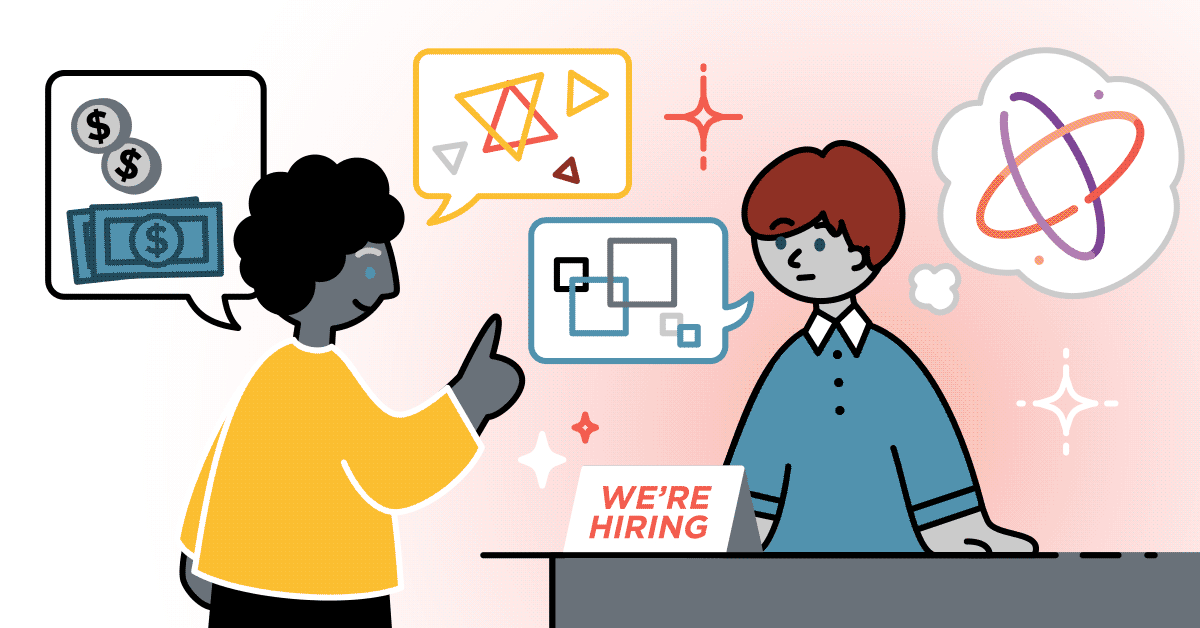
While workplaces continue to grow and change in the new world of work, they need to ensure that they’re finding the right people for the right positions. Making smart hiring decisions is more important than ever before.
Here are four mistakes to avoid and a few pointers you’ll need on how to handle your hiring process.
1. Not Considering Soft Skills

When it comes to finding the right person for the right job, you might be surprised to find that one of the most important skills you can be hiring for is emotional intelligence (EQ). EQ has been written off in the past as a ‘soft skill’ but it’s crucially important for workplace communication and success.
An employee can have the perfect qualifications and previous experience, but if they can’t communicate and actively listen and support others on your team, you’re going to have more problems than solutions in the long run.
LinkedIn shared that “EQ was 400% more powerful than IQ when predicting who would have success in their field — even the smartest of the smart benefit significantly by high levels of emotional intelligence.”
One of the best ways to measure emotional intelligence during the hiring process is to use an assessment designed to do exactly that.
2. Not Outlining the Job Before, During, & After the Interview Process

If you’re looking to hire for a crucial position in your organization, you might be panicking while you attempt to find the right candidate. Don’t panic! The work you do in that time of transition to set your team up for success will be your secret weapon in the hiring process.
Clearly outlining and defining a position before hiring candidates is the way to go. That way, everyone involved in the process will be on the same page and understand what skills and talent you’re looking for in potential candidates.
If you’re hiring without a long-term plan, you’re making a mistake. Think before moving quickly in the hiring process without considering these other factors. If you’re just hiring to “fill the seat”, you’re going to lose productivity, engagement, and profit over time.
The right candidate needs to be engaged in the work of the position, match up behaviorally with the rest of your team, and see a future for themselves within the organization.
Utilizing a benchmarking process is the easiest way to get this done. “Benchmarking is the process of creating the profile of the ideal candidate for a position, and then measuring all candidates against that profile,” we’ve shared before. “It’s most commonly used in the interview process, but can also be used to measure an employee in their current role.”
3. Not Explaining Expectations or Not Being Transparent

So you’ve moved into the interview process and identified a promising candidate who has the behavior, skills, and attitude that would be perfect for your team. But then something goes wrong — they ask for a salary that you cannot provide or they ask about remote work options while your team has fully returned to the office.
Do you make a promise to meet their demands with no intent to follow through, or do you let the dream candidate slip through your fingers?
Think long and hard about your answer. If you’re not making expectations on these fronts clear from the jump in your interview process, you’re going to create more long-term problems than that short-term solution.
If you can’t give a candidate a truthful answer, don’t give them that answer, period. Don’t be swayed by creating exceptions to your rules, either — that will breed resentment on your current team and decrease engagement and productivity.
Consider what candidates are asking for and see if you can give that to them on a larger scale. If your dream candidate wants it, does that mean your company is missing something essential, like comprehensive benefits or competitive pay? Creating a positive company culture will help in the short term and long term.
4. Misrepresenting the Organization

Clearly representing the job is essential, but so is clearly representing your company. If you don’t have an established company culture and company values, you’re losing another differentiator and you’re giving your potential candidates a reason to go to your competition.
Now more than ever, people want to work for a company that aligns with their values. We’ve shared before that “More than half of employees were willing to go to a competing firm in search of a better culture, and 48% said they’d consider working a 60 hour week in exchange for a better culture.”
If you’re not actively asking questions to improve and work on your company culture, you’re falling behind the competition. Snag top talent by knowing who you are and owning it! If the candidate identifies something about your company culture that doesn’t align with their needs during the interview process, they can save the time of everyone involved by making the right choice for them.
The hiring process can be complicated but it doesn’t need to be! Your entire team will benefit from a stringent hiring process with clearly defined steps, established values, and honest deliberation.
Do you want help transforming your organization? Need an expert to help you navigate the hiring process? TTI SI can help. Contact us here to learn more about using our tools for your team.







